Charlie Parker
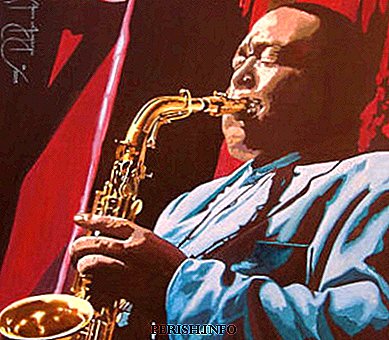
An unsurpassed performer, Charlie Parker is not just a cult musician. He was one of the pioneers of a completely new musical direction - bebop. As he himself said: "Bebop has nothing to do with jazz, it is anything but jazz. There is no swing in it". Nevertheless, Parker's jazz musical merit should not be underestimated, because his teachers were famous jazzmen, from whom he adopted the style of the game, some performing techniques and a sense of style. Parker is the greatest improviser that goes far beyond the limits of classical, generally accepted jazz traditions. No wonder bebop called "progressive jazz." A bright innovator, Parker was one of those young performers who were looking for their own path to fame - and eventually found it.
short biography
Charles Christopher Parker, as his parents called him, was born on August 29, 1920 in Kansas City, Kansas. The boy's father, Charles Parker, was a rather musical person. He worked part time in several roles: he played the piano, danced and sang. But mother - Eddie Parker, did not have musical talents and worked as a cleaner. Despite the fact that Charles was the only child in the family, his father did not indulge him with attention, and the mother took over all the care for his upbringing.
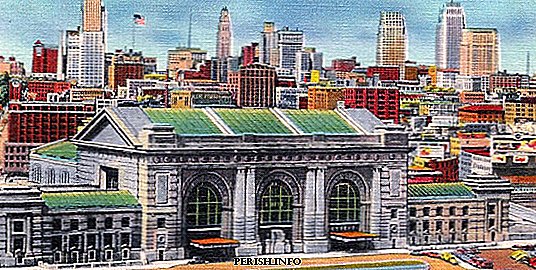
7 years after the birth of Parker, the family moved to Missouri, to a city with the same name - Kansas City. In it, little Charlie and spent all his childhood and youth, in the same city, he went to secondary school.
In the early 1930s, Parker's father abandoned his family, which greatly affected the boy's mental equilibrium. In order to distract himself, he begins to play in the school ensemble a variety of brass instruments - the euphonium, and his mother buys him alto saxophoneto cheer up my son.
When Parker turned 14, Eddie Parker enrolls his son in Lincoln High School. But the training was absolutely not given to Charles, since all his thoughts were fully absorbed by the music. Taking advantage of the fact that his mother was absent in the evenings, working as a cleaner, Parker ran away from home and went to nightclubs. In one of them, he heard the alto saxophonist Lester Young, who became an idol for the boy. A year later, when he was 15 years old, Charlie dropped out of school and joined the city's performing musicians. At the same age, the teenager begins to use drugs.
Soon, Parker begins to perform in nightclubs, without having any musical education. Partly, he was saved by impudence, because as a performer he was still very weak. His fingers could not keep up with the fast-moving ideas that were born in his head, so he could lose his rhythm or stop at all in the middle of the piece. For this he was often ridiculed, which hurt him very much. For example, in 1937 in the middle of a jam session at the Reno Club, Parker lost his sense of harmony and stopped playing, frozen in confusion, for which he was ridiculed by the public and kicked out of the hall in disgrace.
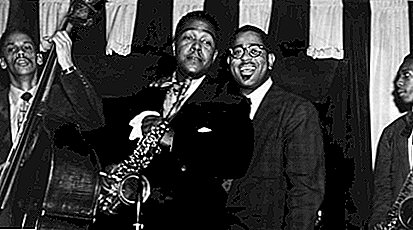
To prove to everyone his superiority, Charlie began to study 15 hours a day, absolutely not sparing himself. He joins the "Buster Smith" group and takes over many of the tricks of the game from them.
1938 was the turning point for Parker, when he joined the big band Jay McShenna. In 1939, he goes on tour with them to New York and decides to stay in this city. To earn money for food, he washes the dishes, while at the same time participating in jam sessions in nightclubs. On one of them, the realization suddenly comes to Parker that if you use the top notes of complex chords as a melodic line, you can modulate into any key without limiting yourself to anything. This discovery allowed him to finally express what he could not convey with ordinary music.
In 1941, along with the orchestra of Jay McShenna Parker recorded the composition "Honeysuckle Rose" and it comes to fame. At this time, he earned his nickname "Yardbird". In 1942, Charles, along with a like-minded group, among whom was Dizzy Gillespie, began experimenting with jazz at Harlem nightclubs. After 3 years, Charlie creates his own band playing bebop. Bringing a new style to perfection, the Parker team is making a revolution in jazz music. Dozens of orchestras are starting to try to play in the same manner as the Parker team. In 1947, Charlie creates a quintet, with which he writes down his famous works. From this moment he begins to conduct active touring and creative activities.
In 1949, Charlie Parker recorded six pieces together with a string orchestra. His sound in these recordings is much cleaner and softer, and improvisations are more thoughtful and harmonious. At this time, Parker did not take drugs, and this is clearly audible by more elegant and natural solo inserts.
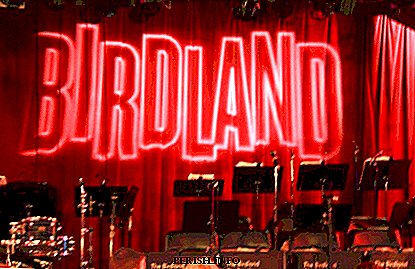
In 1954, due to the death of his child, Parker finally loses the will to live. His last concert was given in the club "Birdland", named after the musician. The performance ended with a scandal and all club owners turned away from Parker. None of the institutions wanted to let a person more to himself, falling into a rage from any trifles.
Parker left from all and began to live with his fan - Baroness de Konigsvarther. One day, watching TV, Charlie Parker passed away. It happened on March 12, 1955.
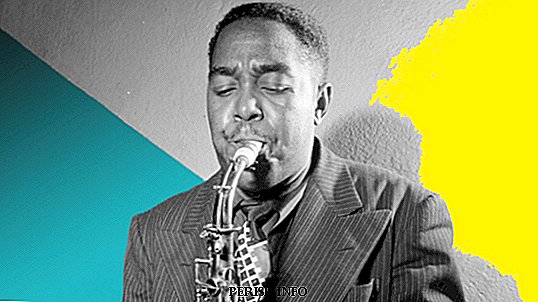
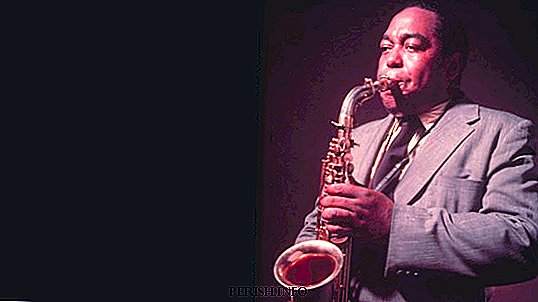
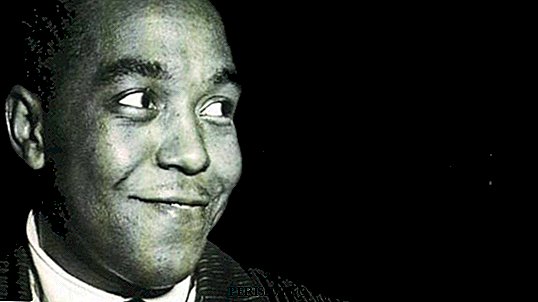
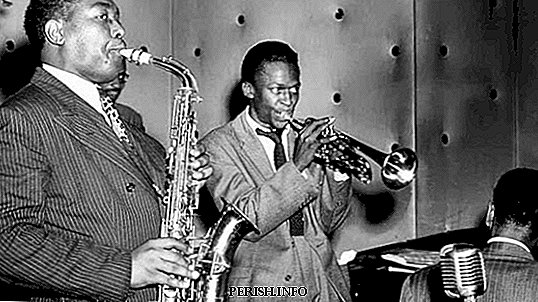
Interesting Facts
- There are several different opinions about the appearance of the nickname “Ptah”. The most common is that the name comes from his friends, due to Parker's excessive addiction to fried chicken. Another one says that while traveling with his group, Parker accidentally drove into the chicken coop. Therefore, he was jokingly nicknamed "Yardbird" (Birdyard), and then reduced to a simple "Bird" (ptah). Well, the last one says that it was so called because of incredibly light, "fluttering" fingers.
- The titles of many works written by him have references to birds.
- Parker simply adored the music of violinist Yasha Heifetz and could spend hours listening to his records.
- His favorite recordings with a string orchestra pushed numerous fans away from him. They argued that Parker sold for money, which greatly wounded the musician.
- The greatest jazzman - Louis Armstrong, compared the sound of bebop with learning exercises.
- According to his friends, Parker was well versed in music: from classical European to Latin American and country music.
- All his life he tried to get rid of heroin addiction, replacing it with an addiction to alcohol.
- His composition "Night and Day" sounds in the computer game Grand Theft Auto IV.
- In 1948, he earned the title of "Musician of the Year" according to the authoritative magazine Metronom.
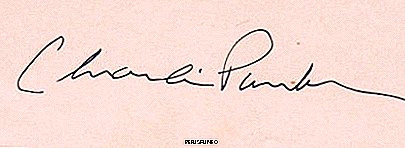
- He was very interested in music. Igor Stravinsky, finding in him a like-minded person in some moments of using musical texture.
- Parker's classic quintet was the later known trumpeter Miles Davis.
- In 1953, Parker used a plastic saxophone from Grafton at one of his concerts.
- He played on 5 saxophone, including on one, made specially for it by the firm "King".
- By the end of his life, Parker adopted Islam, becoming a member of the Ahmadi movement in the United States.
- The doctor who performed the post mortem autopsy estimated Parker’s age from 50 to 60 years, although he was only 34 years old.
- Parker's funeral was paid for by Dizzy Gillespie.
Personal life
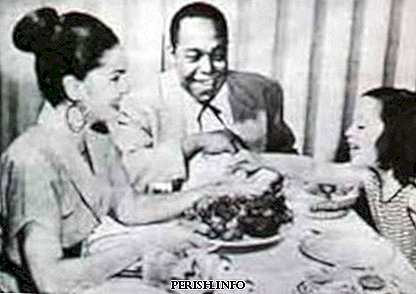
Charlie Parker was very popular with the female, so much so that some female fans chased him from state to state. It is not surprising that with such an attitude towards himself he was married several times, and his marriage did not in the least interfere with his riotous adventures. His first wife, Rebecca Ruffin, married him in 1936, when Parker was only 15 years old. From this marriage, Charles has two children - Leon and Francis. The marriage was short and broke up after 3 years.
In 1943, he married a dancer Geraldine Scott, but they did not live together for long. Due to constant quarrels the couple quickly dispersed. Natura Parker did not tolerate loneliness and soon he would marry again, this time to Doris Snydor. Because of Parker's addiction to drugs, the marriage lasted only 2 years, although they were not officially divorced. In 1950, he begins to live with model Chan Richardson and her daughter Kim. Officially, they could not sign, because Parker did not want to divorce his former wife - Doris. Chan bore him two children, but in 1954, his little daughter When she dies, she finally plunges the great jazzman into the abyss of drug addiction.
Top songs
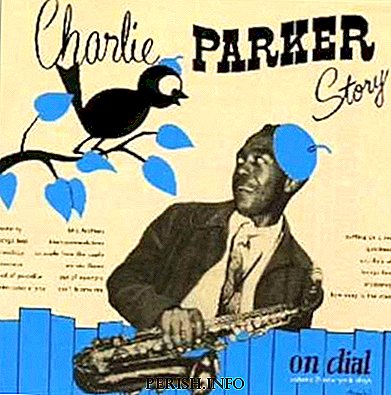
"Ornithology" - almost the most famous work in the bebop style, first recorded by the Parker ensemble in 1946. The name hints at Parker's nickname - Ptah.
"Parker's Mood" - The beautiful blues, recorded and performed by Parker in 1948, along with John Lewis, Curly Russell and Max Roach.
"Yardbird Suite" - another reference to the nickname Charlie, the jazz standard, recorded in 1946. This composition has become a peculiar anthem of bebop.
"Confirmation" - extremely complex composition with ragged rhythm and very complex harmony, recorded in 1946. Like almost every thing Parker, has become a jazz standard.
"Lover man" - This item is considered one of the best recorded by Parker. During the recording, the musician was under the influence of heroin, so his producer Ross Russell had to support him in front of the microphone until the piece was recorded.
"Moose the Mooche" - Charlie recorded shortly after leaving his ensembleDizzy Gillespie. There is an assumption that the thing is named after the nickname of the dealer who supplied Parker with drugs for several years.
"Billie's Bounce" - great blues recorded by Parker in 1945. In 2002 he entered the Grammy Award Hall of Fame.
Films with Charlie Parker and his music
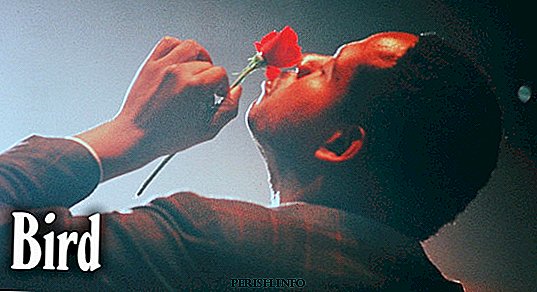
- "Jivin 'in Be-Bop" (1946)
- "The Cool of the Evening" (1967)
- "Sven Klangs kvintett" (1976)
- "The Bird" (1988)
- "The Last Days of Chez Nous" (1992)
- "Wherever the wind blows" (2003)
- "Professor Norman Cornett" (2009)
- "Very Low" (2014)
Unfortunately, the life of a talented musician was cut short too soon. It is not known how much more he could tell the world, and how many unrealized ideas he had left in store. Recognized during his lifetime a genius who does not tolerate anyone's advice and lives by his own rules, Charlie Parker forever went down in history as a rebel, whose manner of play cannot be repeated by almost any person. Boldly and resolutely rejecting classical rules and traditions, he created a new music, so voluminous in content, that it is almost impossible to measure.

Leave Your Comment